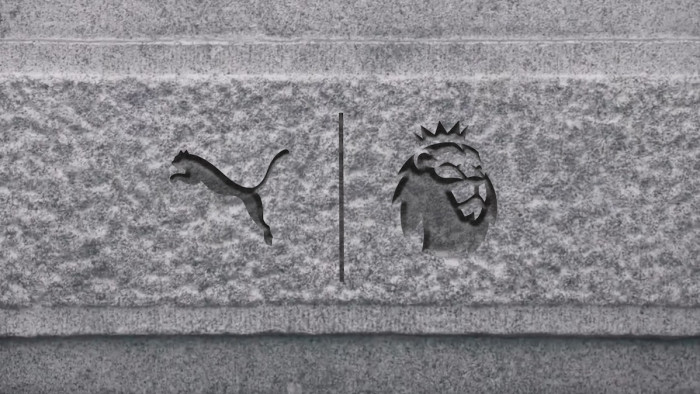From disaster to triumph: the overlooked miracle of Wycombe Wanderers
It's gone under the radar, but Gareth Ainsworth has masterminded a remarkable turnaround at Adams Park


Gareth Ainsworth: driver of a vintage Mustang; frontman of a rock band; former cult hero during a long playing career as a swashbuckling midfielder; manager of a professional football club - all whilst having much better hair than the thousands of fans who watch his team every week. A real-life Roy of the Rovers character who has quietly overseen a minor miracle in Buckinghamshire.
With the upper echelons of football continually selling their soul to the highest bidder, fans hungry for real competitive action, where winners can come from more than just a handful of the richest clubs, are now having to look lower down the footballing pyramid for their inspirational fairy tales.
This season, Ainsworth’s Wycombe Wanderers along with fellow plucky upstarts Accrington Stanley, have turned the EFL League 2 table on its head by both winning promotion ahead of clubs with much bigger budgets and stature.
But what makes this achievement all the more remarkable is the fact that just four years ago the fan-owned Buckinghamshire club were on the very brink of relegation from the Football League and financial oblivion.

Go back to the 2013/14 season and times were so tough for Wycombe Wanderers that they struggled to pay players their appearance fees and goal bonuses. Ainsworth himself had his own salary deferred during the second half of the season, a fact he kept to himself despite fans calling for him to be sacked due to the poor results. Their previously prolific youth system was closed down to save the club money meaning that the club were very rarely able to field a full squad. In training, the club didn’t even have enough players to play a practice match whilst their yoga instructor was left unpaid and walked out, resulting in injuries as the season wore on. At one point even Ainsworth, then aged 40, found himself having to be named as a substitute during competitive matches, simply to make up the squad numbers. Up until last season, he was still playing for Sunday league side Finchampstead Athletic to keep up his fitness, should he ever be needed.
Results were terrible and on the penultimate weekend of the season, Wycombe lost again and fell into the dreaded relegation zone. With one game to go, they needed a win at Torquay whilst relying on other teams to lose.
The situation looked beyond hopeless with fed up fans turning on Ainsworth during his first full season as a manager. But, somehow, they stayed up on the final day of that terrible season and kept the club in business.
Four years later and Ainsworth was held aloft on the pitch by those very same fans, all singing his name as Wycombe Wanderers celebrated promotion into League One.
So how did he lead a club from the brink of disaster to success?

“I’m good at convincing myself I think. I had to make sure that I believed we were going to do it and there was no way this club was getting relegated from the Football League” says Ainsworth.
“When you say it enough to yourself and other people, you start to believe it. I let that emotion run away with me inside like an excitable child. I needed to convince people that if we won then results would go our way. Obviously I couldn’t control the other results, but the positivity spread from here and in the end Bristol Rovers went down.”
The Chairboys’ longest-serving player, Matt Bloomfield, explains the effect: “The only person I could speak to who thought we could stay up was Gaz. Nobody else really believed we could stay up, we were [going] down. In the end, on the team bus [down to] games, Gaz was so relentless we all started to believe we could do it.
“He has a knack and a skill to make 24 grown men believe in what he says and believes in. It’s an amazing skill to have. His positivity and belief in himself and the team around him is infectious. We run through brick walls for him.”
After a “couple of beers” on the journey home after the win at Torquay which kept them up, Ainsworth returned to work, vowing to “never return to that dark place” with a five-year plan to turn the club around and gain promotion.
‘Gaz’ became ‘Gaffer’, moving players on and moulding a team in his own image but his infectious enthusiasm wasn’t just embraced by the team. Fans responded too, volunteering to help maintain the stadium and training ground to help cut costs whilst backing a donation scheme to help bolster the playing budget. With no money to spend on transfer fees, the squad - made up of freebies and inspired loan signings - ended the season at Wembley, just 21 seconds from winning the play-off final before eventually losing on penalties.
The remarkable turnaround continued and so did the stories - A 46 year old goalkeeping coach keeping a clean sheet in his first competitive match in over ten years because the club couldn’t afford a reserve keeper. Two FA Cup runs pushing Premier League Aston Villa and Tottenham Hotspur to the limit. The signing of Adebayo ‘The Beast’ Akinfenwa, who despite being well over 30 years old and supposedly too big to play football, proved to be a masterstroke, scoring 36 goals across two seasons.

Adebayo ‘The Beast’ Akinfenwa in action against Spurs in a narrow 4-3 defeat in January 2017
“My job as a manager is to be positive, to instil belief in people and make them achieve more than they think they can, to dig deeper to places they’ve never dug before to try and pull something out,” explains Ainsworth reflecting upon his deft touch of ‘bringing out the best’.
“The human mind is a fantastic thing, there is so much untapped potential in there. If you can access a little bit more then it can be so powerful. It’s OK to just be positive, but you [also need] to back it up with hard work and keep learning.”
Two solid seasons followed, resulting in narrowly missing out on the play-offs, with injuries and fatigue taking their toll on the tiny Chairboys squad.
By the time the 2018 season was the time to deliver. Having narrowly avoided promotion during the previous seasons and after a slow start, a section of fans began to grumble once more even though Wycombe’s budget was still substantially less than most of the other teams in the league.
Feeling the pressure was not an option for Ainsworth.
“I’ve looked in the face of the biggest pressure you can get in the game. Getting relegated from League 2, that could have been the end of the team,” he says.
“The end of somebody who’s put 40 or 50 years into supporting Wycombe Wanderers, somebody buying tickets, shirts, somebody following the team every week and going into work the next week and talking about the team’s result. That could have been the end of all that. I could have been responsible for that. That’s pressure.”

Wycombe fans on the walk up to Adams Park
Form turned around and the Chairboys shot up the table, finding themselves in the top three with the chasing pack in hot pursuit. On the back of a trouncing by Accrington Stanley, the Chairboys travelled to Chesterfield for the penultimate game of the season needing to win and two other results to go their way to ensure promotion. It was a delicious parallel to four years earlier.
By this point, belief amongst the players had become as automatic as the impending Wycombe Wanderers promotion.
Bloomfield explains: “The gaffer was convinced we would go up at Chesterfield. On the way up to the game, we changed our routine and left our cars at the stadium rather than at the services, just in case there was a party bus coming back later that day. A couple of the players did it at first and the rest followed and before you realise it, we were all thinking like Gareth and that it was going to happen that day.”
The match was won 2-1 and, with results going their way, promotion was theirs. As football fairytales go it’s an underdog story that could rank alongside Leicester’s 2016 Premier League triumph and Clough’s all-conquering Forest team during the ‘70s.
The party raged through the night, the culmination of four years’ hard work with Ainsworth spotted the next morning, still in his match day suit and Wycombe scarf walking up one of the town’s famous hills. With a sparkle in his blue eyes he explained:
“It was a great party, I wanted to thank everyone in the town who’s helped us achieve this great story and it took me all night.”
So where does Gareth Ainsworth see himself in the future?
“In five years time it will be fantastic to be in one of the top two divisions in the country, I would love to be there. That’s my aim and whether that happens or not is maybe in other hands, but I’m ready to believe that I can do that. Just as I was positive that we were going to win at Torquay, just as I was positive that we would win at Chesterfield, I’m thinking positive that in the next five years I will be in the top two divisions.”
Don’t stop believing.
(Images: Getty)
Latest
Related Reviews and Shortlists









